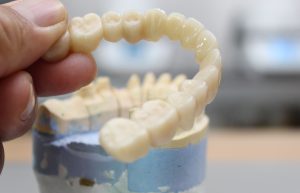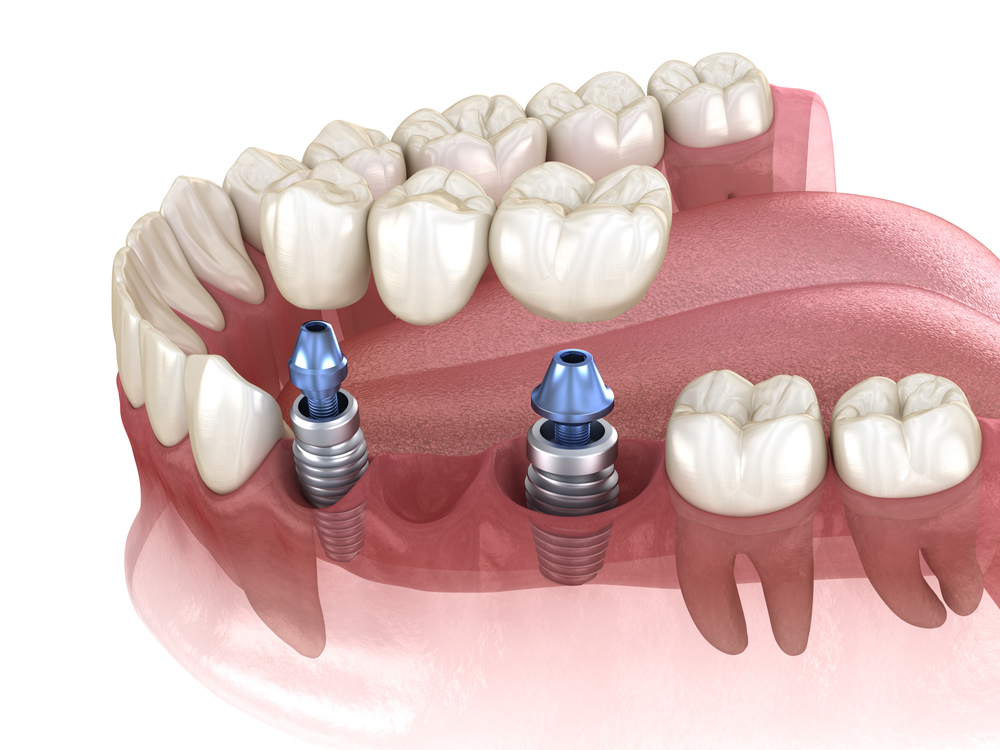Bridge the Gap in Your Smile with Dental Bridges Near You

Give our Berwyn dental clinic a call at (708) 788-4444 to talk about options. We offer free consultations to start things off right.

Give our Berwyn dental clinic a call at (708) 788-4444 to talk about options. We offer free consultations to start things off right.
Robles Family Dental creates a supportive setting in Berwyn for people of all backgrounds. Dr. Kenny Alejandro Robles applies his training from Cuba and UCLA to deliver reliable bridge work that stands up over time. Dr. Robles is fluent in English and Spanish, making dental care more accessible for our community.
Positioned on Harlem Avenue, the dental office lies near spots like MacNeal Hospital for added peace during health visits. Berwyn’s Depot District brings dining choices close by for meals after care. This location supports quick stops from nearby towns without hassle.
Dental bridges consist of false teeth anchored to neighboring natural teeth or implants to replace missing teeth. They span the empty spot, restoring bite force, speech, and smile balance. Bridges come in materials such as porcelain or metal for strength and a natural match, helping prevent shifts in remaining teeth or jaw problems.
Dental implants and bridges can be combined to create highly effective solutions for replacing multiple missing teeth, offering advantages that neither treatment provides alone. When several adjacent teeth are missing, traditional bridges require grinding down healthy neighboring teeth to serve as anchors, which many patients and dentists prefer to avoid. Instead, dental implants can be strategically placed to support a bridge, eliminating the need to alter healthy teeth while providing superior stability and longevity. This approach, called an implant-supported bridge, typically uses two or more implants to anchor a bridge that replaces three or more missing teeth in a row.
The combination of implants and bridges is particularly beneficial for patients missing larger sections of teeth, as placing individual implants for every missing tooth can be costly and may not always be feasible due to bone density or spacing limitations. Implant-supported bridges also help preserve jawbone health better than traditional bridges, since the implants stimulate the bone just like natural tooth roots.
This integrated approach often provides the most natural-feeling and longest-lasting solution for extensive tooth loss, combining the stability and bone-preserving benefits of implants with the efficiency and cost-effectiveness of bridge restoration for multiple teeth.

Traditional Bridges: These use crowns on adjacent teeth to hold the replacement in place. They suit cases solid teeth on both sides of the gap. Durability makes them a go-to for everyday use.
Cantilever Bridges: Supported by a crown on just one side, cantilever options work when only a single healthy tooth borders the space. They save a more natural structure. Less common, but effective for certain front areas.
Maryland Bridges: Bonded with wings to the backs of nearby teeth, these avoid full crowns for a lighter touch. Porcelain or metal frameworks provide a hold. We do not offer Maryland bridges at Robles Family Dental; reach out for alternatives.
Implant-Supported Bridges: Fixed to dental implants surgically set in the jaw, these bridges handle multiple gaps without relying on natural teeth. They promote bone health and feel secure. Longer setup, but rewarding for stability.
During your free consultation, Dr. Robles can determine if you are a good candidate for dental bridges. This can include:
If gaps in your teeth cause these problems, contact Robles Family Dental in Berwyn at (708) 788-4444. Our dental team can check your fit for bridges.
Understanding the advantages of dental bridges can help you make an informed decision about tooth replacement, from improved chewing function to enhanced smile aesthetics—learn more about dental bridge benefits and how they compare to other restoration options.
 Restored Chewing Ability: Bridges let you tackle a full range of foods without slipping or pain. This supports better digestion and meal variety. Health improves as nutrition gets easier.
Restored Chewing Ability: Bridges let you tackle a full range of foods without slipping or pain. This supports better digestion and meal variety. Health improves as nutrition gets easier.The process of getting a dental bridge typically involves two to three visits and several precise steps to ensure optimal fit and function. Discover the complete dental bridge procedure timeline and what to expect during each appointment.

Daily oral hygiene should include brushing twice a day with fluoride toothpaste and using floss threaders or special bridge floss to clean underneath the pontic (false tooth) where food particles and plaque can accumulate. Avoid chewing on hard objects like ice or using your teeth as tools, as these habits can damage or dislodge the bridge, and consider wearing a nightguard if you grind your teeth while sleeping to protect both your natural teeth and the bridge from excessive wear.
Regular dental checkups and professional teeth cleanings every six months allow your dentist to monitor the bridge’s condition, check for any signs of decay around the supporting teeth, and address potential issues before they become serious problems.
Expect $2,000 to $5,000 for a bridge, varying by span size and materials. Simple ones cost less; implant kinds add more for surgery. Area rates and extras like exams influence totals. Many policies cover shares for replacements. At Robles Family Dental, we break down figures and explore payment methods.
Wondering about bridge costs in Berwyn? Dial (708) 788-4444 for a personalized quote.
Most patients find dental bridges quite comfortable once they’ve had time to adjust, typically within the first week or two after placement. Initially, you may experience some sensitivity or tenderness around the supporting teeth, which is completely normal as your mouth adapts to the new restoration. The bridge should feel secure and stable, much like your natural teeth, once the adjustment period passes.
If you experience persistent discomfort, rough spots, or areas where the bridge rubs against your gums or tongue, your dentist can make minor adjustments to ensure a perfect fit.
Dental bridges are designed to restore your ability to chew effectively, returning most of your original bite strength and function. During the first few weeks, it’s recommended to start with softer foods and gradually work your way back to your regular diet as you become accustomed to the bridge.
High-quality porcelain bridges are actually more resistant to staining than natural tooth enamel due to their non-porous surface. However, they can still develop surface stains over time, particularly if exposed to staining substances like coffee, tea, red wine, or tobacco products. The key to maintaining the bright appearance of your bridge is consistent oral hygiene.
If your dental bridge feels loose, it’s important to contact your dentist promptly to prevent further complications. A loose bridge can allow bacteria to enter underneath, potentially causing decay or infection in the supporting teeth.
In many cases, a loose bridge can be successfully re-cemented if caught early and if the underlying teeth remain healthy. However, if significant decay or damage has occurred to the supporting teeth, more extensive treatment may be necessary. Most bridges that are properly cared for remain securely in place for many years without issues.
Tooth loss impacts more than looks—it changes routines. In Berwyn, our dental bridges bring back wholeness with care that fits you. Dr. Robles provides accessible, safe, skillful care to patients throughout Cicero, Riverside, Oak Park, and more. Call (708) 788-4444 now to set a visit with our Berwyn family dentist. Regain your full smile today.